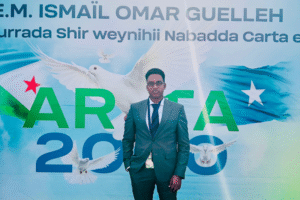
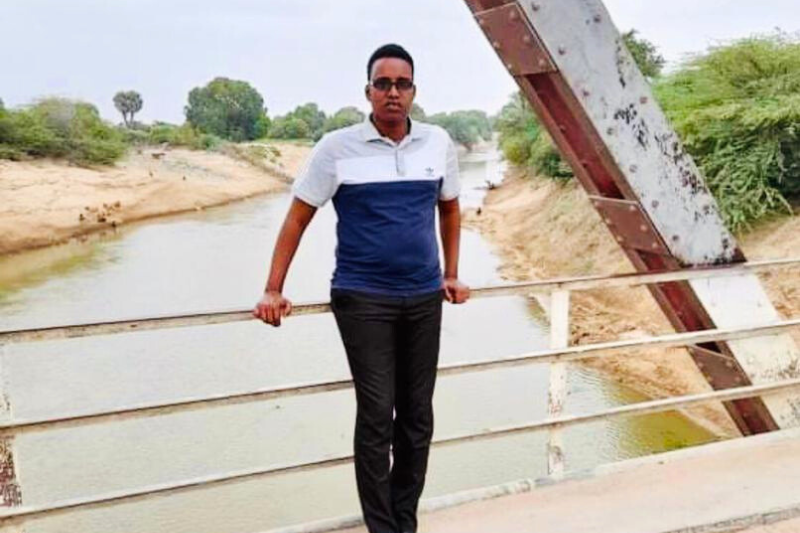
Going back to Buulaburte – my hometown – had a lot of emotional attachments. The last time I was in the city was August 2010, when I was about to start my sophomore year at Mogadishu University. I was now going back to the town after ten years and six months (or 10.5 years) on 16 February 2021. This time, it was not only me. I went back with my wife and our three young children – it was the first visit for all of them. We were all happy and excited about the trip.
We landed in Buulaburte airstrip, which has been the only secure entry point for the city in recent years. Since the Federal Government of Somalia (FGS) forces along with the Djibouti contingent of AMISOM took over the control of the city from al-Shabaab in March 2014, the city was blocked and access to it by roads has been very limited.
That week we travelled to the city, the local municipality and the Djibouti forces were in contention over who manages the landing fee of the airstrip. The protest of the district commissioner to collect the landing fee was responded to by the Djibouti contingent senior officials and the Hirshabelle administration. The latter sent the Hiiraan governor and several regional MPs to address the matter. I was later told that the Djibouti forces have been collecting the landing fee for a while after the former district commissioner asked them to do so.
After landing, we went straight to our house, the home of my mother and two of my younger brothers. On our way, I was greeting everyone I recognized along the street. I was very excited that I was finally back in my hometown.
The first few days of my stay, I visited the Qur’anic Madarasa of my late teacher Moalin Abdirahman who died in March 2019, may he Rest in Jannah. It was a nice recollection to see the functioning of the Qur’anic Madarasa of my late teacher. His sons (two of them) continue his legacy and teach at the Madarasa. I vividly remember the day I presented an Arabic lecture on the rights and obligations of the neighbor (xuquuqul jaar) at the opening ceremony of the new buildings of the Madarasa and an adjacent mosque in late 2005, both sponsored by a Kuwaiti woman.
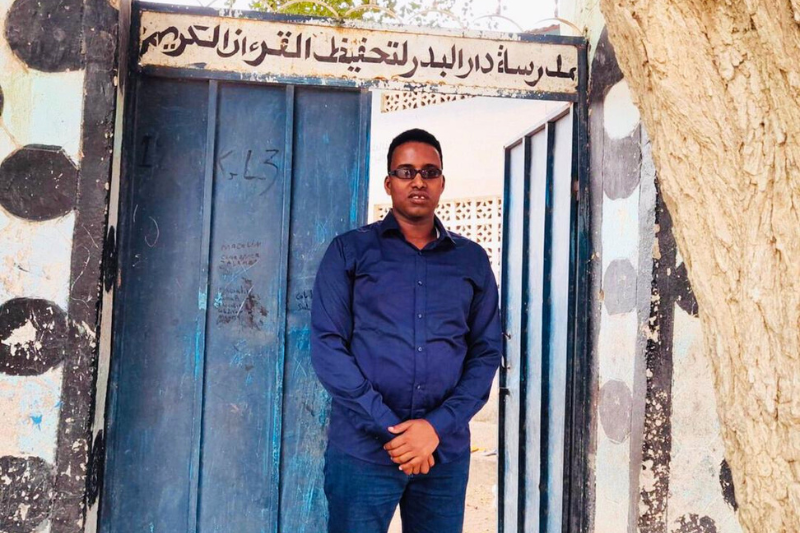
I paid a courtesy visit to my former primary school – Ahmed Gurey – now a primary and secondary school. The school has now its land and building. I met with the school principal, Sheikh Mohamed Qoorlule, who was also my Quranic Tafseer and Arabic Morphology (Sarfi) teacher, and the other youthful school teachers. It was great to see Moalin Nadiirow still teaching the school. He was my science teacher, but he couldn’t remember me. I talked to a form three class. I shared with them my study journey, and how they are luckier than me since there was no secondary school in Buulaburte when I graduated from that primary school in mid-2006. The students were keenly listening to my (mostly inspirational) words. Some asked me about my reading habits and how they can be good readers.

also visited Sheikh Mohamed Bal’ad Secondary School and talked to its students. This visit had a different memory for me. The school is located in exactly the place I often used to play football in my Buulaburte neighborhood, Bagabeeso. The playground was now full of grass and green trees. Most of the teachers were the former teachers of that same school before the state collapse in 1991. I felt their invaluable sacrifice and contribution. I talked to the form four class and told them that we have different memories of that same place.
Meeting my first Qur’an teacher Moalin Mahdi, now a school teacher, in a public primary school was another unique moment. I owe a lot to him; he was the first person to teach me the Holy Qur’an. About a year ago, I asked my brother to get his contact for me and communicated over the phone. But seeing him had a different meaning to me. It was also great to see the son of my sister wearing the school uniform and studying at that primary school.
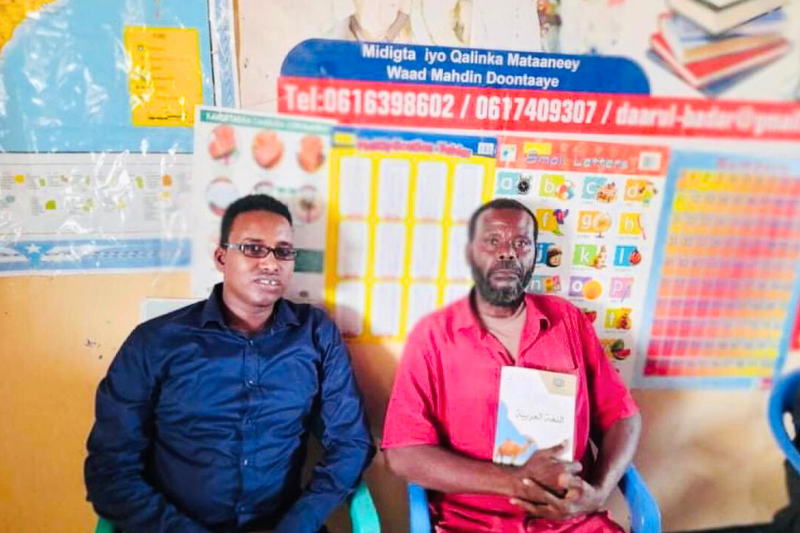
Praying the main mosque also brought back unique memories. The mosque was intact. After the prayer, I would look at the exact places I used to sit when I was among the Sheikh Omar Faruq disciples. I also visited the historic bridge several times.
Spending half a day on the farm of my sister-in-law had a different experience for me, my wife, and our children. We had a mat under a mango tree. The tree was full of mangoes (many of them were ready for eating). We toured across the farm and saw the different crops, fruits, and vegetables that the farm produces. We had lunch under the mango tree and the drinking was fresh coconut water and watermelon from the farm. In the afternoon, my wife oversaw my nephew fishing for us. Three fishes (from the Shabelle river) were netted for us, and we ate the fish in the evening. The farm reminded me of how fertile our land is. Sadly, our people are hungry while our land can feed us sufficiently.

I started playing football matches in the morning. When I was young, I used to be a striker for the team (and my goal scoring was good), but I couldn’t score a single goal this time. Maybe it is a result of my older age now. Most of the youth in town play football in the morning and afternoon; they have to kill the time.
I enjoyed the city’s simple lifestyle. In the afternoon and evening, I would often drink black tea. Its price is 15 cents or 20 cents. You sit in a place, drink tea with several people, and discuss sports, politics, and social life. There is no cappuccino or coffee latte; no tea/coffee and a separate sugar. When it is prayer time, everyone would go to the mosque. That simple life is one of the best things I had in Buulaburte.
That said, the town faces several challenges. First, the city is blocked/locked and an al-Shabaab attack could happen any night (while I was in the town, there was a night there were gun exchanges between al-Shabaab and security forces near the bridge). Second, the local government is fragile, and it has struggled with internal conflicts. Its weakness reflects the overall fragility of the Hirshabelle administration it operates under. Third, there are no investments in public infrastructure. The only meaningful project I observed is the street solar lights by NIS Foundation about three years ago (I was told they are 60 in number), which gives an invaluable light to the city. The electricity was not stable, and these street lights were crucial, especially at night. Worryingly, there is no discussion on how to invest in the city’s key public goods; the blockade must have affected people’s thinking and priorities. Fourth, the social services are weak. Healthcare and education both struggle with a lack of attention and investment. Finally, the regular cutting of the mobile phone antenna in the morning for about 1.5 hours to 2 hours (primarily to protect airport security) causes problems. The dependence of electronic money means that when the antenna is cut, there can be no transaction and everything is halted. The people in rural areas have also some difficulties in sending dollar cents for the purchase of goods and services. With all the challenges the city faces, its people act like those in Silicon Valley or Singapore as they don’t use a hard currency at all.
Despite these challenges, I have thoroughly enjoyed my 16 days of stay in my hometown Buulaburte. The kids and wife have also enjoyed the trip. We have eaten a lot of red meat (and gained weight) as we were regularly invited for lunch by our extended family. The kids had nice space to run and have fun. I would visit the neighbors and people I knew in their houses in the evenings. I would sometimes walk around the town to see how things changed over the years. This has revived my dormant memory. I started remembering the names of some people I could only recognize their faces in the first few days. If I don’t come to the house around 8:30 pm, my mother would call me and would ask why I am still in the town and should come home. No matter the age, you are always young for your mother. I would laugh and then go straight to the house.
I often shame myself that apart from supporting my family and relatives, I did not initiate or contribute to the city’s development. Even discussions on development interventions are lacking there, which worries me a lot. The nature of the environment – a land blocked for about seven years – has certainly negatively affected the people’s thinking about development and the potential of the town.
My return took more than ten years partly because I was a student pursuing a university education and later establishing my professional career in Mogadishu. I hope my next trip to my hometown will not take that long, and I will be able to contribute to the city’s development, one way or another, in the near future.
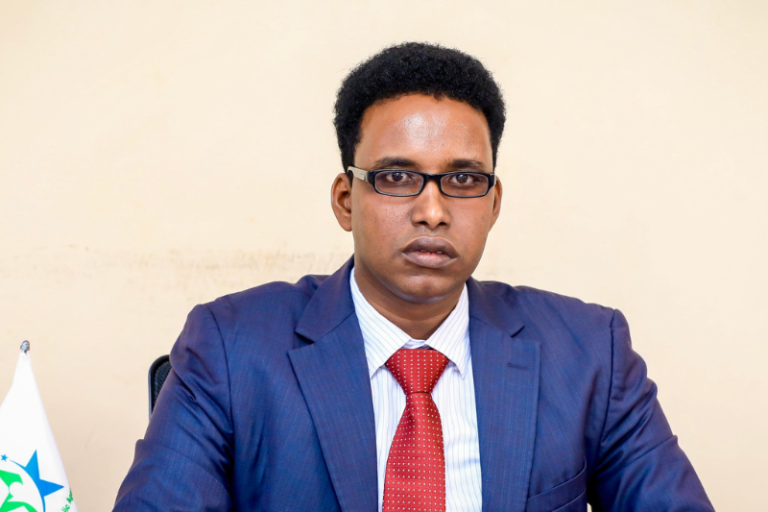
Is a researcher, teacher, podcaster and blogger. His work over the last decade has focused on teaching and researching governance, justice and social services in Somalia.


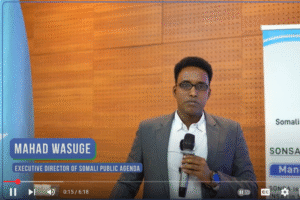

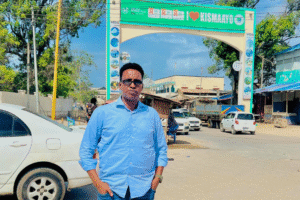
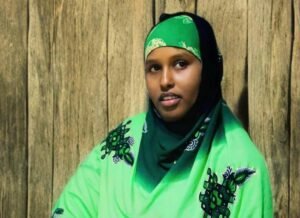
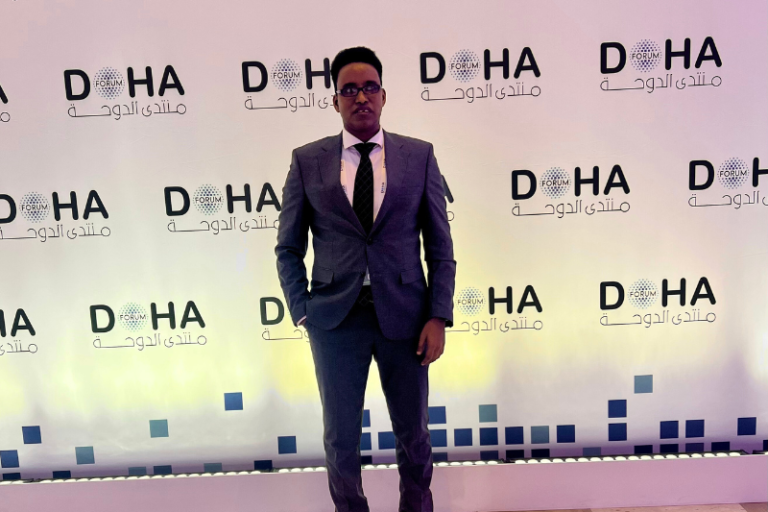

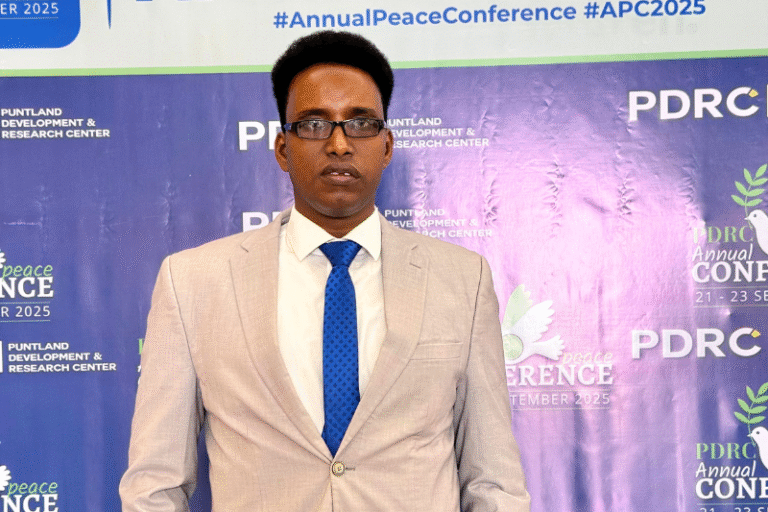

2 Responses
This is a beautiful piece of writing. Thanks. I visited my auntie in Buloburte in 1978. Her husband the then governor of the city. I spent great 4 weeks there. I remember going for walks after dinner with family and friends; and sometimes going to the Cinema. I still remember the movie: Papillon.
Again, thanks for reminding us of the a great city in Somalia.
Fardosa
Thank you Fardosa.I am glad that by blog post revived your old memory and reminded of of your 1978 trip to the town.